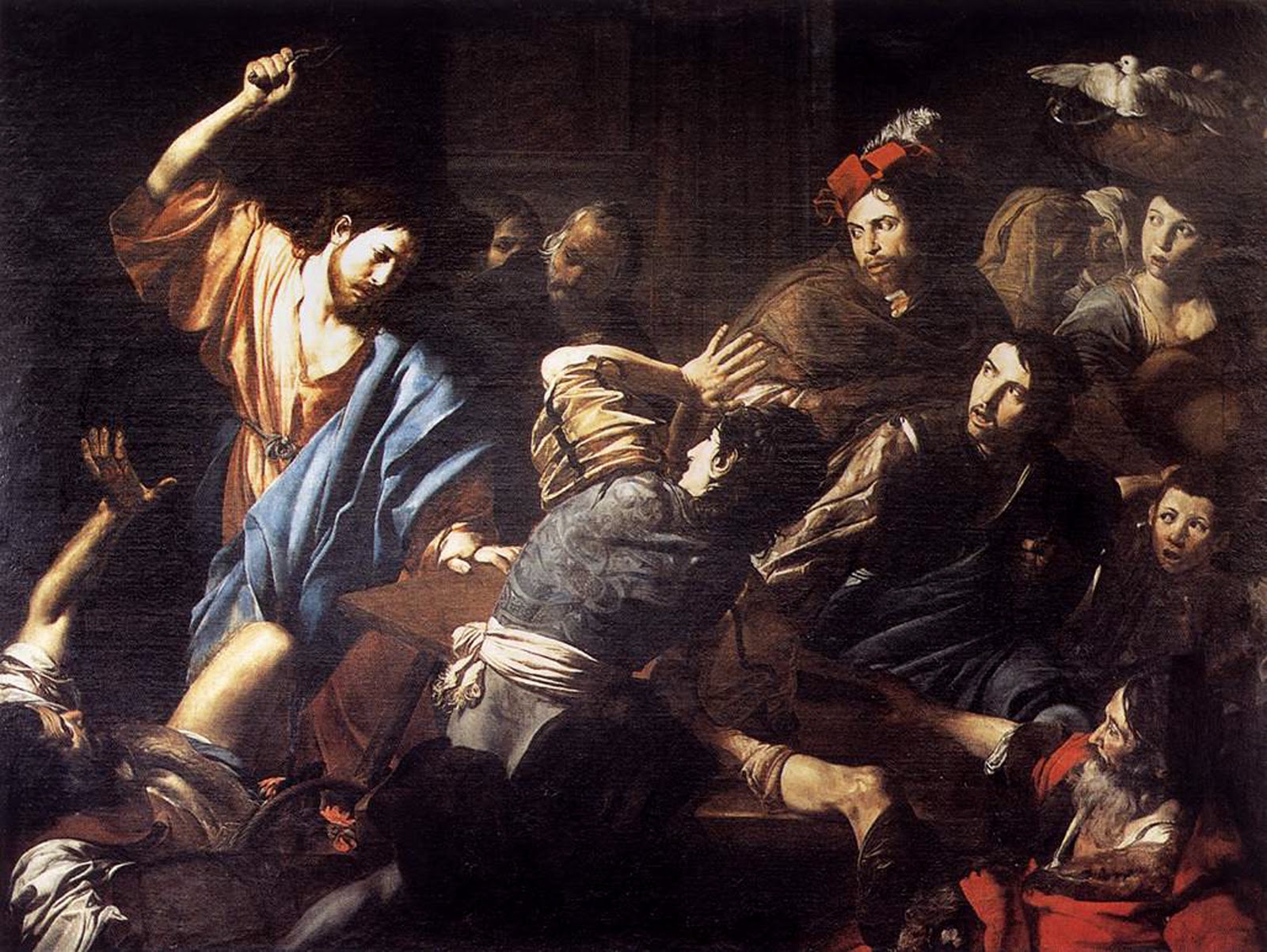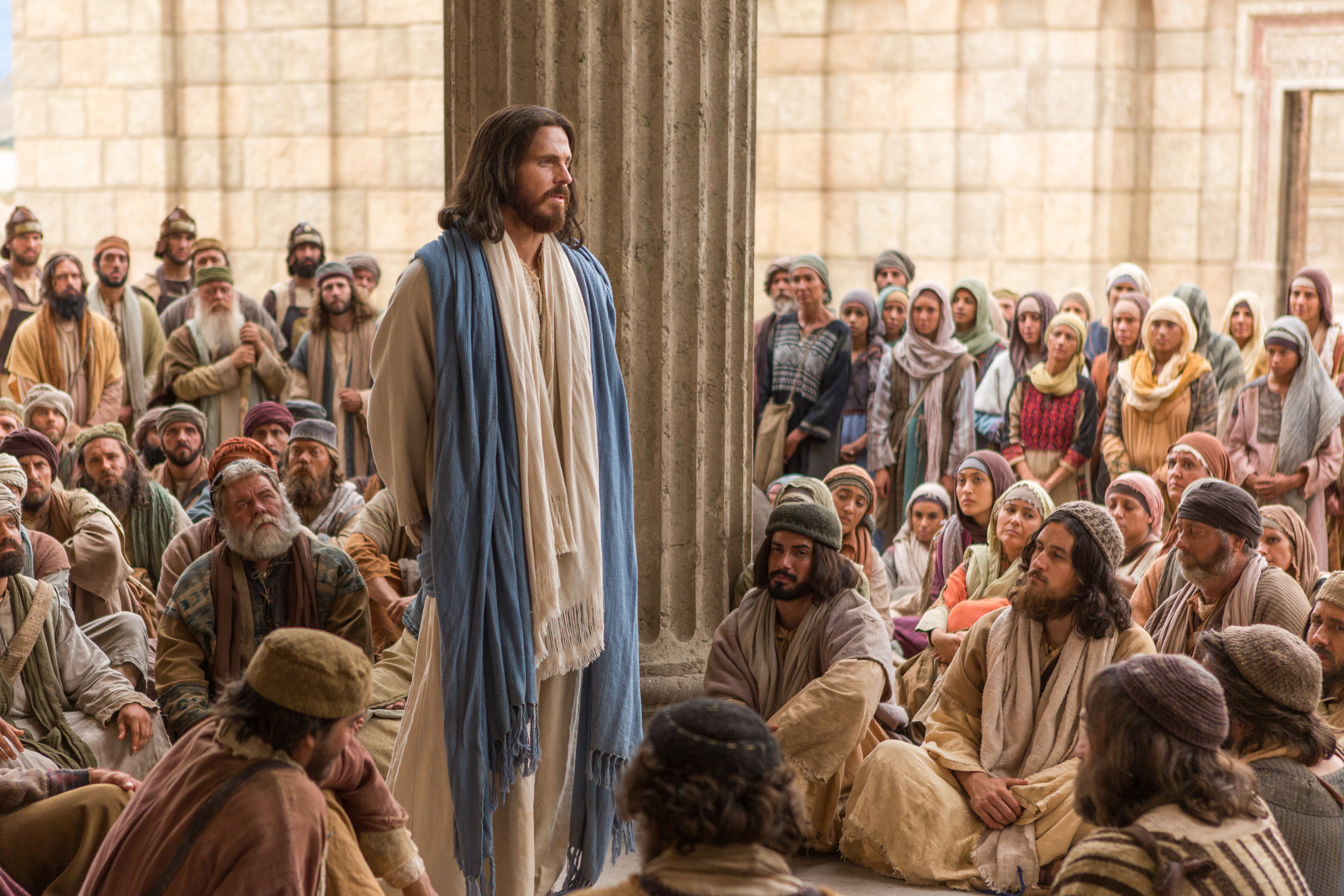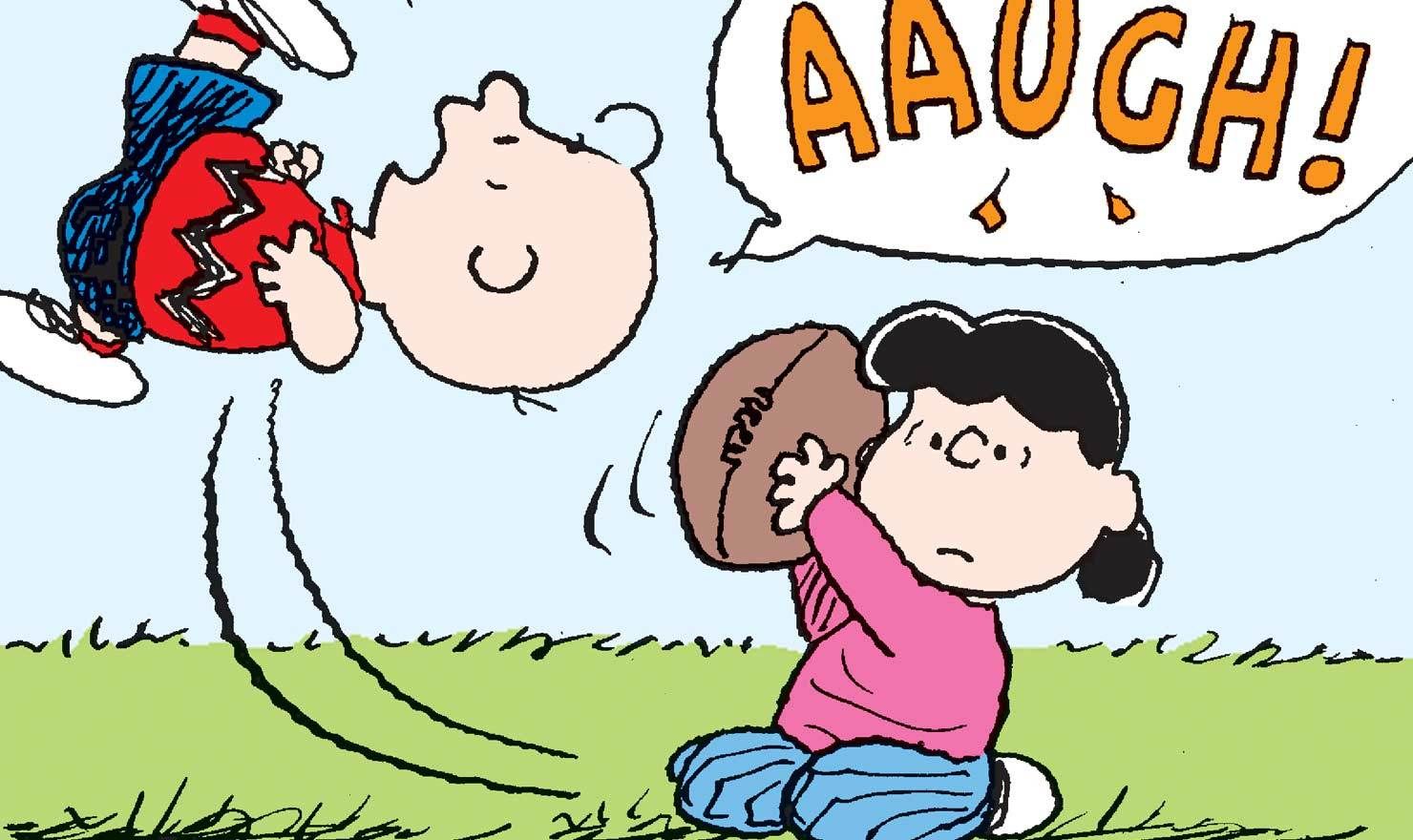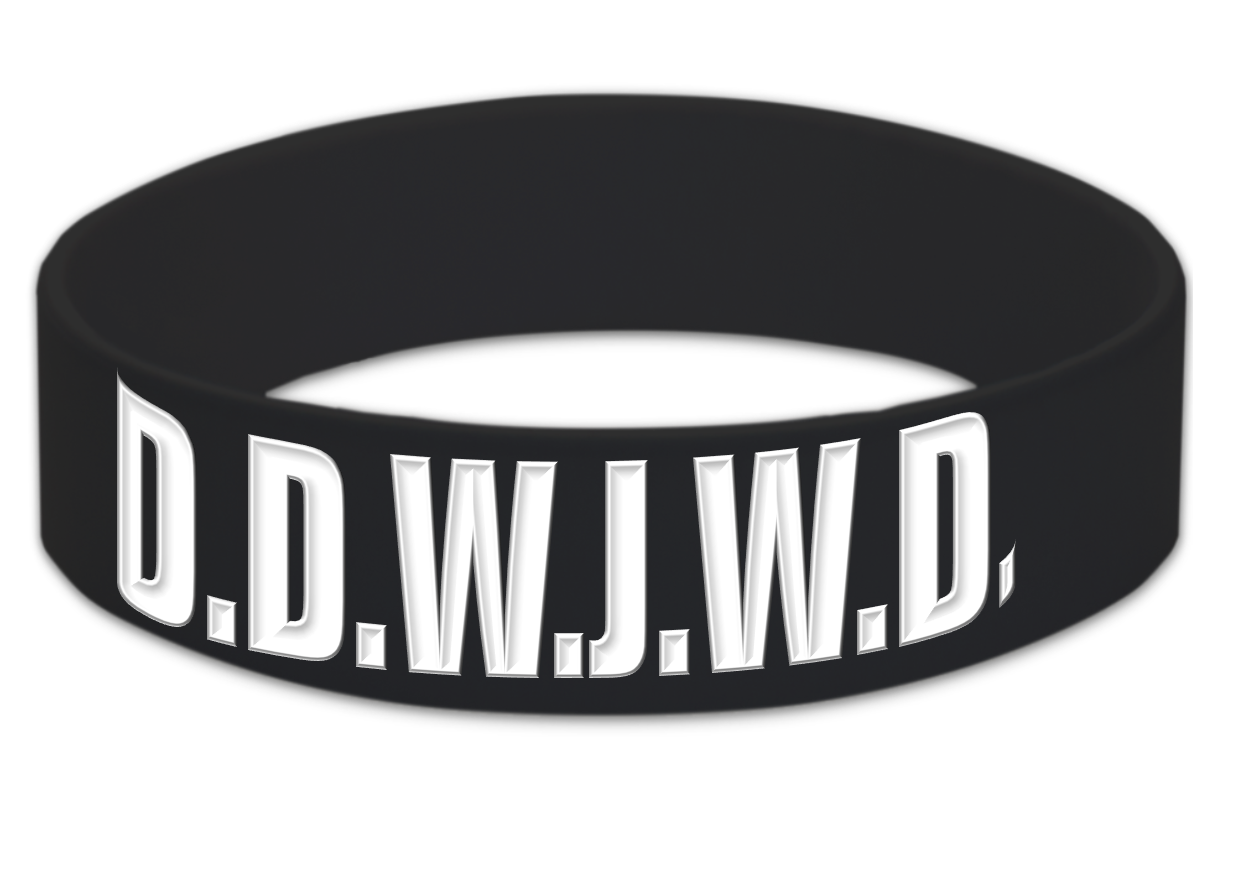Some kid at Bible camp ran up behind my son, Jadon, and slapped him on the back of the neck. I guess he wanted to take on the biggest guy in the cabin.
Jadon whirled around, narrowed his eyes and growled. The kid, immediately regretting his decision, resorted to playing the Jesus card, “Now, now, man, take it easy…what would Jesus do?”
“Well, I don’t know.” Jadon snarled, cocking his head to the side. “Maybe he’d make a whip out of cords and drive people out of the temple with it.”
“What?!” the kid exclaimed as he scrambled to stay out of reach. Apparently, nobody told him that you’d better come well-armed if you want to use the Bible to manipulate a preacher’s kid.

This story illustrates (don’t worry Jadon didn’t hurt the kid) the flaws in a method commonly used to guide Christian decisions – the old WWJD.
After reading Charles Sheldon’s book, In His Steps: What Would Jesus Do, a youth minister named Janie Tinklenberg ordered 300 friendship bracelets embossed with “WWJD?” for the students in her ministry to wear as a reminder to consider the question when making decisions.¹ What started as an object lesson became a movement, then a marketing goldmine, and then a farce. I guess nobody ever stopped to consider or care that maybe Jesus wouldn’t turn his own example into a flood of kitsch made by political prisoners in China.
The movement has since waned, but the question remains. Maybe that’s because as we fumble around for a consistent Christian ethic, doing what Jesus would do seems like an idea we can take ahold of even if the reality remains perpetually out of reach. The life of Jesus of Nazareth as depicted in Matthew, Mark, Luke, and John holds a powerful allure. The personality that emerges from those pages stands in relief from the sullied characters we meet day by day at our work, in our homes and in our mirrors. Jesus can’t be critiqued. He’s at least “just alright” with everyone.
Christ’s allure drew me the first time I read the book of Matthew. He synergized passion and serenity, acceptance and truth. His piety shamed the most observant Pharisee even while his promiscuous social activities chafed their sensibilities. He called himself the wisest and greatest person to ever live. Then, he invited every burdened soul to come to him because he’s humble and lowly. Somehow, he pulled off the contradiction so well that I hardly noticed it. There he was – acceptance, meaning, purpose, wisdom. He pushed my dreams and drives aside and took up sole ownership of my consciousness. I could only envision myself living as a penniless itinerant, teaching in the open air about the kingdom of God. I thought surely every churchgoer would want to live his way.
But they didn’t.

Six months’ immersion into church culture morphed my frocked and sandaled avatar into a besuited pulpiteer. The vision didn’t look much like the original, but it seemed more doable. Once I cleared the Bible college hurdle, I could go straight to the pennilessness and teaching ministry of Christ’s life.
I didn’t clear Bible college (more on this later), so I returned to reclaim my hopes of engaging in open-air ministry while attending the state university near my home town. That’s where I met Jamie, the girl who would become my wife. I shared some of my vision of following Christ with her on our first date. She seemed to buy in, but communication doesn’t flow as well as it should across a medium of nerves and hormones. For me, poverty meant homelessness. For her, it meant driving a used car and living in a humble dwelling. We continued to date and in the blissful blindness of young love we never did sync up our expectations.
We soon married and then spent the next ten years grappling with each other over the configuration of our life together. The dissimilarity between our lifestyle and that of Jesus afflicted my conscience. I always wanted to give stuff away or sell it. I wanted to move to deeply impoverished neighborhoods serve and to save the residents. Jamie was not inclined to take such drastic measures.
Because my compulsions felt to me like the will of God, I would demonize her. “How could she even be a Christian when she refuses to sell everything we have and live among the poor?” I would ask myself.
Since big change takes more energy than remaining with the status quo, I would normally just stuff my angst and move on to the next mundane task.

At this point, you might criticize my lack of resolve but before you do, you need to know that my conviction was mitigated by another conflict roiling within me. Marriage thrust my heart into the center of an ugly custody battle between the New Testament Gospels and the Epistles. I wanted to radically follow Jesus as he appeared in the Gospels, but I was also beholden to the imperatives in the Epistles. The Gospels didn’t talk about marriage except to prohibit divorce and to require that disciples be ready to leave their wives and children to follow Christ. The Epistles prescribed commitment, love, consideration, and financial support for one’s spouse. Since I couldn’t simultaneously obey the Bible and do what Jesus would do, I would vacillate between each set of instructions depending on circumstances and mood.
During one of my Epistles phases, I agreed with Jamie that we should purchase a larger house. We bought an older craftsman house almost three times the size of our previous place. Aside from the discovery of a profuse water leak in the basement, we were delighted with it.
Then, the Gospels began to rebuke my un-Jesus-like decision. I brooded in my guilt and alienation from God. I hated that house and everything that came with it. According to the ream of papers I had signed at closing, the house would hold the title to my freedom for the next thirty years. I raged over every minute wasted on repairs and improvements. A dark shadow lowered across my brow.
Jamie couldn’t help but notice, and she pried from me the reason for my change in demeanor. By his time, she had endured ten years of this struggle, so she took a different tack. She suggested that we let God reveal whether he wanted us to sell the house. We would put the house up for sale until a date which I would set. If it didn’t sell by that time, we would accept that God did not want us to sell the house after all.
Ha! Now I had her. Obviously, God wanted us to sell the house. This would be my chance to finally pull Jamie across the gulf between us. I prayed for guidance over the configuration of the sale. I wanted to ensure that I didn’t derail God’s plan on its way out of the station. After a time of praying and waiting I felt led to list with an agent for a specific dollar figure. In accordance with Jamie’s proposal, I prayed for guidance over the divine deadline. I felt a distinct prompting that it should sell by March 20th which would be ninety days from the day we listed it.

I passed eighty-nine days in the certainty that God would sell the house. My reasoning was solid. Jesus didn’t have a place to lay his head. He told me to follow him. Surely, homeownership stood between me and doing what Jesus would do. What would Jesus do? Sell the house, that’s what!
As time ran down, my confidence galvanized. Surely, this was just a test of faith and I didn’t plan to fail it. On March 20th, that test intensified into a full-fledged trial. The confidence, hardened over the previous three months, began to crack under the weight of elapsing hours. At the stroke of midnight, my model of Christianity shattered.
My body rose from my bed at four the next morning, an empty shell plodding off to the job I loathed. It required that I spend four-plus early morning hours every day working like a galley slave unloading trailers. Drained of all morale, I pled with God for a reprieve. About twice a year, I got to drive a truck over to the next state to pick up next day delivery packages which the normal distribution network had missed. I asked God to allow me to make that run as a mercy for a broken soul.
I walked under the conveyor belt to get my work assignment for the day. John, my supervisor, shouted out, “Nate, you’re in the unload.”
“Figures.” I thought to myself as I lumbered toward purgatory.
Before I reached the expanded metal platform, my supervisor shouted again, “Nate, forget about the unload. I need you on the returns trailer.”
“Well, at least that’s better.” I thought, half praying.
I’d handled ten packages or so when John changed my assignment yet again, “Brown up,² Nate, you’re going to Tulsa.”
God, it seemed had answered my prayer very specifically, but I wasn’t consoled. I was still angry.
After I’d driven the brown metal box for an hour to the west, I passed a geodesic dome that housed a “health and wealth” church. The marquee out front advertised a guest speaker from Trinity Broadcasting Network.
Disgusted, I confronted God, “You let crap like this go on in your name, but when I try to actually live a sacrificial life, you reject me!” I don’t remember what else I said. I only remember melting into tears and snot, swerving in and out of my lane, as I shouted my pain through the windshield. Somehow, I made it safely to the airport, but I wouldn’t have entirely minded if I hadn’t. I woodenly loaded thirty or so boxes and headed east, eyes glassy and burning from tears.
The rays of first light had just begun to grey the landscape when another church sign stood out in relief. As I neared it, these words came into focus:
“NOT ABANDONED”
I’m sure whoever put those words on the sign had their own meaning in mind, but for me, it seemed like a message straight from God. Though I was no less angry, I did feel less sad.
As I processed this experience, the image of Lucy Van Pelt goading Charlie Brown into kicking a football and then yanking it away kept flashing into my mind. I felt like God had strung me along throughout this process so that I would really run at selling the house and giving everything away. This was finally my big moment to prove myself and I wasn’t about to miss it. Then, “Aaaugh!” His chicanery left me embarrassed and aching, lying flat on my back. But at least I was at rest and looking up.

I’ve come to understand that for zealots like me, only the dramatic failure of rigid expectations can shatter the Christ complex and make way for real spiritual progress. Apparently, (assuming God exists and responds to prayer) he didn’t want me to do what I thought Jesus would do.
Footnotes:
- “What Would Jesus Do? The Rise of a Slogan.” BBC News Magazine. December 8th, 2011. http://www.bbc.com/news/magazine-16068178
- In UPS lingo, “Brown up” meant to put on the brown uniform.

